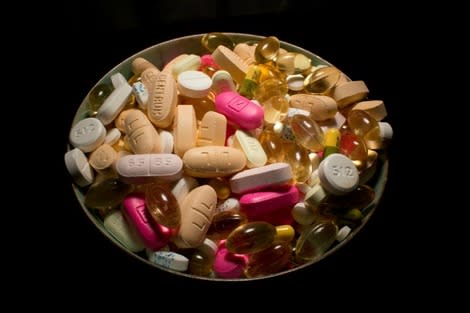What to Do If You Have Food Poisoning

Food poisoning is one of the last things most of us want to plan for when preparing for a trip. Even the thought of an upset stomach while on the road is uncomfortable. In any case, the possibility is always there, so it's best to know how to identify and manage your symptoms ahead of time.
10 Most Original Road Trip Snacks
According to the Mayo Clinic, food poisoning (also called a foodborne illness) "is illness caused by eating contaminated food." The most common causes of food poisoning include various infectious organisms like "bacteria, viruses, and parasites," which can contaminate food at any stage of production and/or preparation.
How to Avoid Eating Fast Food on a Road Trip
Thankfully, however, most cases can be handled without seeing a physician (although there are times when one should seek medical attention). There are also basic steps, like washing your hands and cooking foods to a safe temperature, that you can take to avoid food poisoning when in charge of preparing your own food. One doesn't always have this control when traveling, though, so check out our slideshow for tips on how to bounce back in case you've come down with a stomach bug.
10 Healthy and Delicious Snacks for After-School Sports
Drink liquids
It is very important to avoid dehydration when experiencing food poisoning. Although loss of fluids might depend on the severity of the symptoms, your body loses important minerals like sodium, potassium, and calcium that should be replaced.
Rest
You might have to miss out on some of your itinerary, but resting is better for you in the long term if you're feeling unwell.
Stick to a "BRAT" diet
If your health is starting to improve, ease back into eating by consuming easily digestible foods like bananas, rice, applesauce, and toast (or BRAT). These foods will generally be easier on your stomach, but hold off if your symptoms return.
Avoid certain substances
If not feeling totally up to par, the Mayo Clinic also recommends avoiding "dairy products, caffeine, alcohol, nicotine, and fatty or highly seasoned foods" until symptoms have waned.
Consider taking a high-quality probiotic (photo above)
According to health coach Lori L. Shemek, Ph.D., CLC, NC, "a key prevention [and recuperation] strategy to help get you on the road to better health is to take a high-quality probiotic, which is simply beneficial bacteria." Shemek notes that 70 percent of our immune system is in our digestive tract and "the beneficial bacteria promote the production of white blood cells that help fight off the infection." She also notes that an exception to this method's effectiveness is if a physician prescribes an antibiotic, since the antibiotic will kill all bacteria. In this case, it's all the more important to replenish beneficial bacteria.
Lauren Wilson, The Daily Meal:
More from The Daily Meal:
Food Allergy vs. Food Intolerance
Allergy-Safe Lunchbox Ideas
